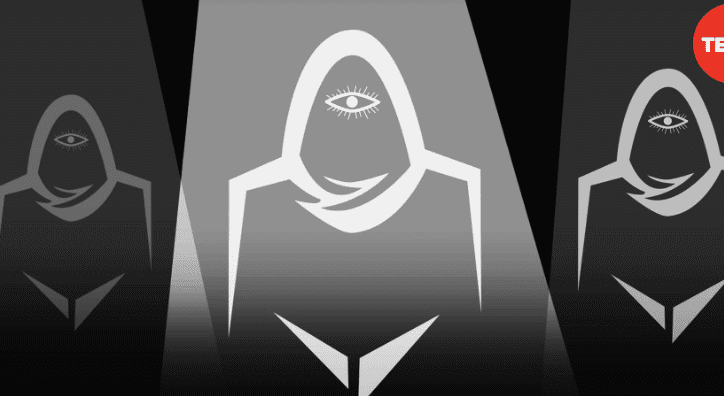A mysterious organization called Illuminati but many people still do not know what Illuminati is? Today we will learn about the Illuminati and its history.
| Join the channel Telegram of the AnonyViet 👉 Link 👈 |

History of the Illuminati
The Illuminati are a secret organization that is said to have existed since the University of Bavaria in the 18th century. The name “Illuminati” refers to a group of people who have joined an organization created by Adam Weishaupt, a teacher. lawyer at the University of Ingolstadt, Bavaria. Weishaupt created a training program for this group of people, in which they learned about history, literature, science, and political concepts. This organization was created with the aim of freeing people from the control of political and religious organizations, and to create a completely free and equal human community.
However, the Illuminati was deemed a secret organization and discontinued after it was considered by the Bavarian authorities to be a threat to the political and religious stability of that country.
From that point on, the ideas of the Illuminati became the main discussion of religion and politics. Some consider the Illuminati to be a secret organization that still exists and is influencing the world, while others consider it to be just some kind of occult with no facts whatsoever.
Although many people consider the Illuminati to be a dangerous secret organization, there is no evidence that it still exists or has any influence on the world. Many people consider the rumors about the Illuminati to be a form of word of mouth and not true. However, not everyone agrees with this view and there are still many who believe that the Illuminati are a powerful secret organization and are doing secret things in the underworld.
What is Illuminati?
In a historical sense, the term “Illuminati” refers to the Bavarian Illuminati, a secret society that was active for only a decade, from 1776 to 1785. The organization was founded by Adam Weishaupt, a German law professor believed. strongly on Enlightenment ideals. and his lluminatenorden sought to promote those ideals among the elite. Weishaupt wants to educate Illuminati members about reason, compassion, and other secular values so that they can influence political decisions when they come to power.
“It’s pretty ambitious for six or nine people, but they really want to take over the world,” said Chris Hodapp, co-author of Conspiracy Theory and The Secret Society for Dummies with Alice VonKannon.
The Illuminati’s goals – and fame – are often beyond their means. In its early days, the group was just a handful of people. And even at its largest, it only includes between 650 and 2,500 members. The group has grown to that size by becoming a sort of sleeping cell among other groups – Illuminati members attend Masonic lodges to recruit members for their own competitive secret society.
Can the Illuminati control the world?
Historians tend to think that the Illuminati were only marginally successful – at most in becoming influential. Of course, there are also those who believe that the Illuminati have successfully taken over the world and still control it to this day. If an almighty group ruled the world, we probably wouldn’t know about it. Δ.
It is also difficult to untangle the success of the Illuminati from the success of the Freemasons they have infiltrated and mingled with. It’s hard to say how influential the Illuminati really are compared to the influence people think they have.
We know the Illuminati had a number of influential members – along with many dukes and other leaders who were powerful but forgotten today, some sources suggest that writer Johann Goethe was a member of the Illuminati. group (although other sources object to this claim). In a way, the influence of the Illuminati depends on what you believe about them. If you think their revolutionary ideals spread to other groups, like the Jacobins of the French Revolution, they succeeded. If you think those ideas will grow despite that, they’re mostly historical curiosity.
Is the Illuminati related to Freemasonry?
Conspiracy theories have always been popular in the United States, but for centuries the Illuminati were less terrifying than Freemasonry. The Anti-Masonic Party of 1828 was based on opposition to Freemasonry, and although the party has waned, Freemasonry remains the epicenter of American paranoia. Because the Illuminati recruited many members in Europe through Masonic lodges, the two groups were often confused.









